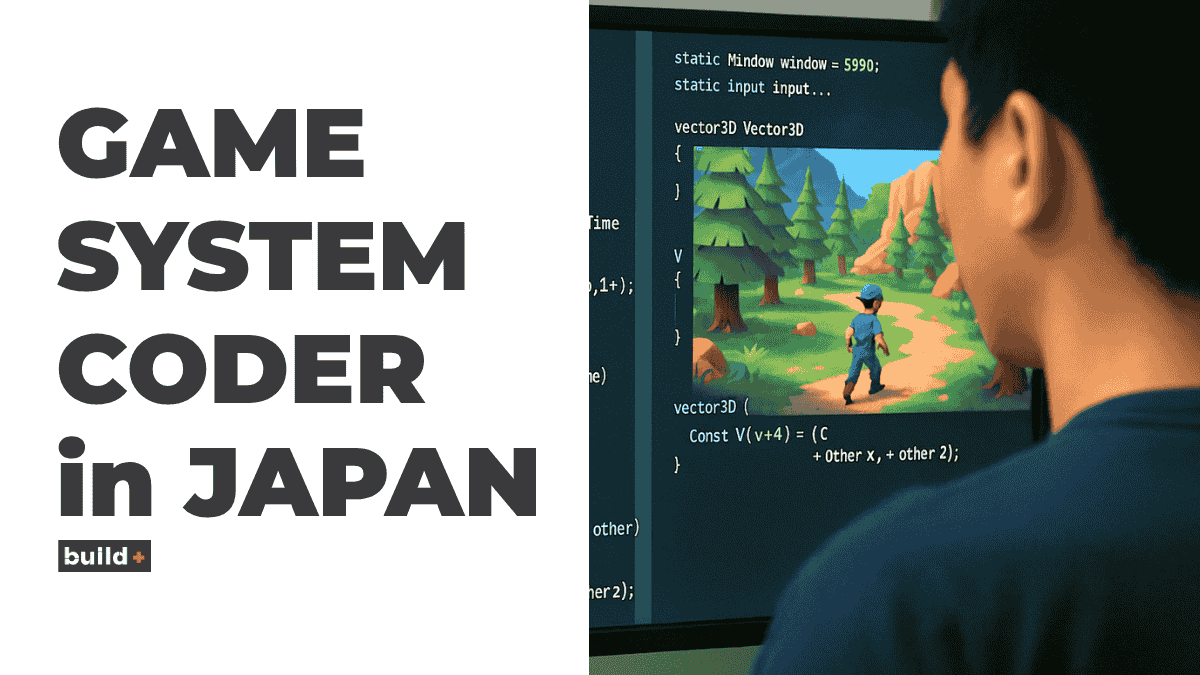[Apply Now] Become a Game System Program in Japan: What You Need to Know
Come to Japan.
We have trains.
You can walk at night.
How can you get here?
Become a System Programmer in Gaming.
Here’s how:
What Does a System Programmer Do in Japan’s Gaming Industry?
You're fascinated by building the backbone of a game.
From the engine that powers the visuals to the tools developers use every day.
A System Programmer in Japan’s gaming industry is what you want to be.
This behind-the-scenes role is essential to game development and comes with opportunities to shape how games are built from the ground up.
So…what do you do as a Game System Programmer in Japan?
System Programmers are the technical architects behind a game’s internal workings. You’d be:
Designing and implementing libraries, frameworks, and in-house engines
Supporting the full game development process
Gathering requirements, conducting R&D, and solving infrastructure challenges
It’s a role that demands technical depth and collaboration. You're building tools that other developers rely on every day.
Core Responsibilities of a Game System Programmer
Typical tasks for a System Programmer include:
Designing and implementing core libraries, tools, and internal frameworks
Conducting technical research to improve game engines
Collaborating with planners, designers, and engineers
Optimizing system performance and debugging issues
Junior System Programmers contribute to similar tasks, with support and mentorship
Skills & Experience You Need to be a Game System Programmer
Companies in Japan look for people with:
C++ development experience (especially for engine-level programming)
Experience building internal tools or reusable libraries
Strong communication skills for cross-functional teamwork
A technical degree, usually in Computer Science or Engineering
For junior roles, general development or research experience is welcome.
Recent graduates or "second new grads" are often encouraged to apply.
Language Requirements
Language proficiency is a critical part of most System Programmer roles in Japan:
JLPT N2 or higher is expected
Business-level Japanese is needed for meetings, documentation, and team coordination
Many tools and codebases are in Japanese
Limited Japanese ability may restrict you to international studios or backend-only roles
Fluent Japanese unlocks more career options and faster progression within the company.
What Kind of Person Succeeds?
Successful System Programmers in Japan tend to:
Stay current with new technologies
Think about developer usability when building systems
Communicate clearly and work proactively
Collaborate and take ownership without waiting to be told what to do
Career Path: How System Programmers Grow in Japan
System Programmer roles in Japan offer a clear and structured career path at medium to large studios.
As you gain experience and expand your technical leadership, you move into more senior and strategic positions.
Here’s a typical progression:
| Level | Title | Key Focus | ||||||||||||||
|---|---|---|---|---|---|---|---|---|---|---|---|---|---|---|---|---|
| 🎓 Entry | Junior System Programmer | Learning the codebase, building internal tools, and gaining hands-on experience with engine-level systems | ||||||||||||||
| 🛠 Mid | System Programmer / Senior Programmer | Designing reusable libraries, leading feature development, mentoring juniors, improving performance and architecture | ||||||||||||||
| 👥 Leadership | Lead Engineer / Technical Lead | Overseeing a small team, managing planning and task allocation, coordinating cross-department engineering work | ||||||||||||||
| 🧩 Management | Section Director / Engineering Manager | Setting technical direction for a department or core technology area, managing multiple teams or projects | ||||||||||||||
| 🧠 Strategy | CTO / Director of Technology | Defining company-wide tech strategy, managing R&D bu
Note: Exact Titles and exact structure can vary by studio, but companies in Japan value long-term technical depth over frequent job-hopping. It's common for engineers to stay with a company for several years as they grow into senior responsibilitie Salary Range for Game System Programmers in JapanHere’s a look at salary bands for System Programmers in Japan:
Note: Salaries include bonuses and overtime. Raises are in April, with summer and winter bonuses common. Work Environment & BenefitsWhile each company is different, here’s what you can generally expect:
Newer companies often offer more modern, open workspaces and flexible policies. Application TipsTo apply successfully in Japan’s game industry:
💡 If you're applying from abroad, some companies may provide visa support or relocation packages. Industry Insights for Programmers in JapanHere’s what else you should know:
FAQ: System Programmer Roles in JapanQ: Do I need fluent Japanese to work in this role? Q: Can I apply without game industry experience? Q: Can recent graduates apply? Q: Do companies in Japan sponsor work visas? Q: Is hybrid or remote work common? Q: What’s the typical interview process like?
It takes weeks to months. Q: Will I earn royalties from the game? Ready to work in Japan?Message us using this link to learn what gaming positions are open in Tokyo!Previous
Previous
Meet the new Build+ AI & Data TeamNext
Next
[Apply Now] Become a Character Designer in Japan: What You Need to Know |




